Breeding for Sustainability
Breeding sustainability into everyday progress
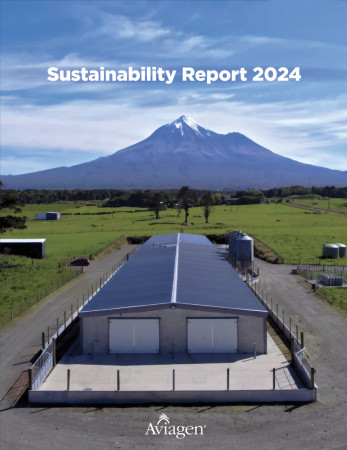 Sustainability shapes how we care for birds, how we innovate for the planet, and how we strengthen food security worldwide.
Sustainability shapes how we care for birds, how we innovate for the planet, and how we strengthen food security worldwide.
Aviagen’s 2024 Sustainability Report demonstrates the outcome of science-based breeding, responsible operations, and strong local engagement across the global supply chain.
The 2024 interactive report brings together our progress in animal welfare and sustainability, environmental impact, and long-term value for farmers and the communities they serve — supported by data and practical action in the field. Structured around the Environmental, Economic, and Social pillars, the report outlines our strategy for reducing emissions and supporting a future-ready global food chain.
We invite you to check out our 2024 Sustainability Report.
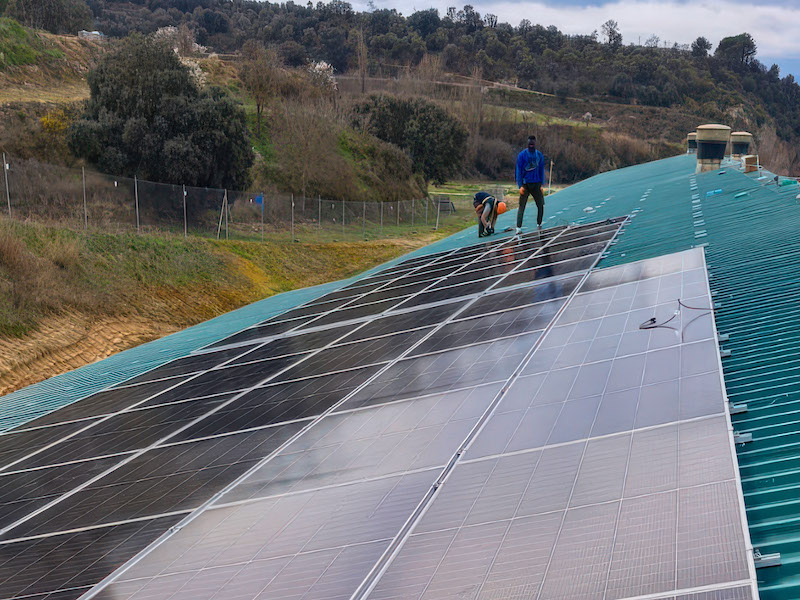
Innovating for people, planet, and poultry in Spain
Our team in Spain is leading the way in practical, data-driven sustainability. By installing solar panels and battery systems, and transitioning hatchery heat pumps from gas to electric, we are significantly reducing energy use and emissions. These improvements not only lower our environmental footprint, but also help reduce long-term energy costs and reliance on volatile energy markets — supporting a stronger and more competitive operation.
Just as importantly, these local initiatives strengthen the people and communities behind the supply chain. More efficient, reliable energy systems support stable hatchery operations, safeguard jobs, and help ensure a dependable supply of healthy chicks for poultry producers across the region. Together, these efforts show how environmental care, economic resilience, and social responsibility can move forward hand in hand. Learn more by watching our short video.
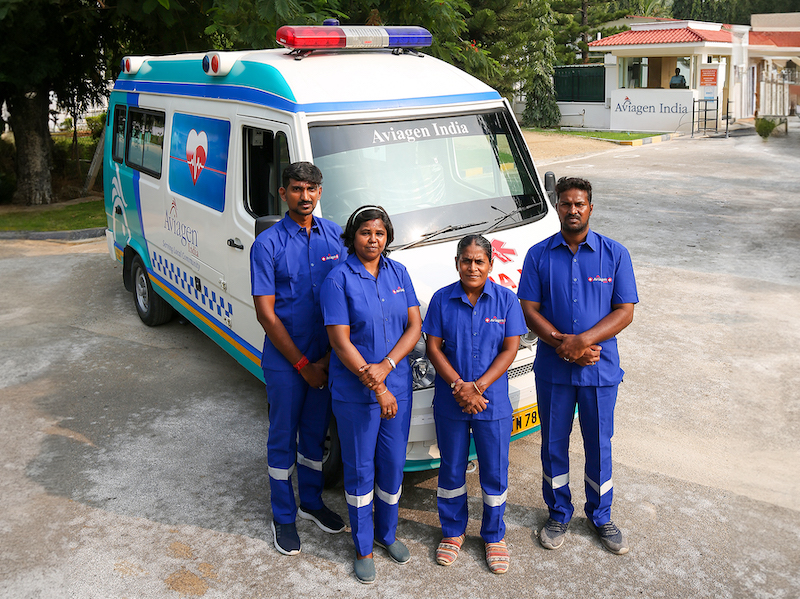
Social Sustainability: Our Commitment in Action
Sustainability is more than a commitment at Aviagen — it’s a daily practice. We are dedicated to caring for our people, collaborating with our customers and industry peers, and creating a long-term impact in the communities we call home. By sharing knowledge and developing the next generation of poultry professionals, we strengthen the entire food system. Education is at the heart of this mission, empowering our global teams and customers to improve flock welfare and efficiency. Here are a few highlights from this year that showcase our commitment to a thriving poultry future.
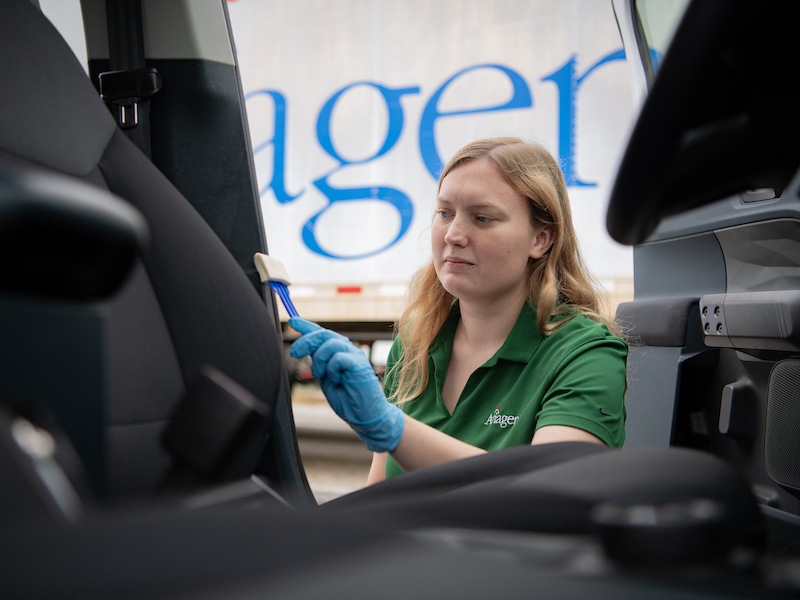
Investing in Tomorrow’s Talent
We are proud to invest in the growth of our own people. The Ian Panton Scholarship was established to honor an Aviagen and industry legend while supporting the development of future industry leaders. Today, the scholarship supports employees like Rebecca Jones, our most recent recipient, who is pursuing a Master’s in Microbiology and applying her studies to help advance our biosecurity practices. Beyond internal awards, we foster global talent through initiatives such as the UK Next-Gen program and by awarding annual scholarships to high school seniors in US communities. From internships to postgraduate research, we provide the tools and hands-on experience needed to build local expertise and develop the poultry leaders of tomorrow.
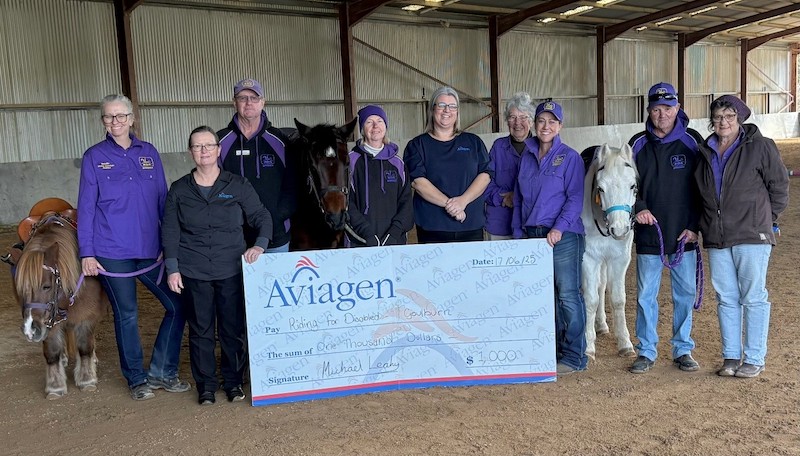
Spotlight on Australia: Local Care, Global Commitment
In Australia, sustainability extends deep into our local communities. We support organizations that help people thrive, like the Riding for the Disabled Association (RDA) in Goulburn. By funding essential care for their therapeutic horses, we help provide a vital service for individuals with disabilities. Our teams also work alongside the Salvation Army Food Market, organizing a "shopping spree" to stock shelves with essentials for local families. These small gestures reflect our deep responsibility to the people and animals in the regions where we operate.
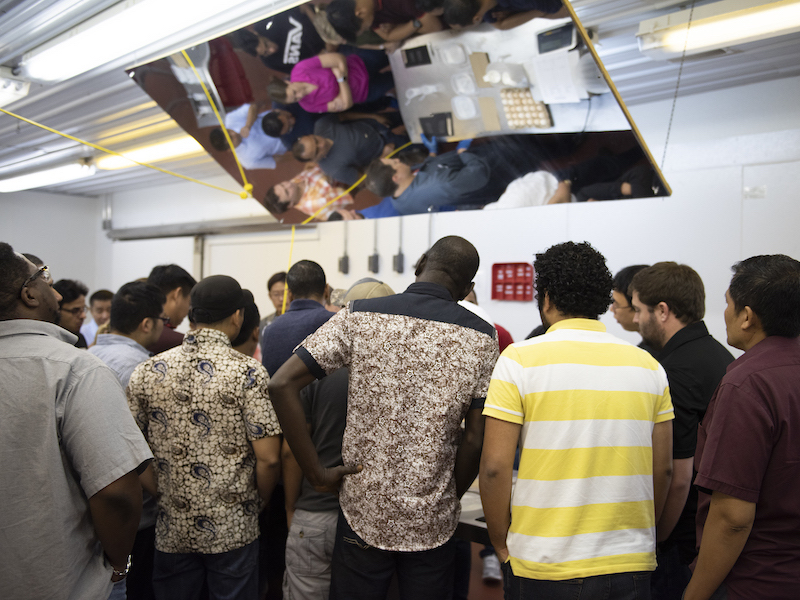
Exchanging Knowledge Around the World
We operate a "legacy of learning" that spans the globe. Our Production Management Schools in North America and the Europe, Middle East, Africa, and Asia (EMEAA) region provide intensive, hands-on training for hundreds of professionals annually. In Latin America, our "Knowledge Without Borders" series brings management and carbon-efficiency expertise directly to local growers, while our Asia-Pacific Master Classes explore the future of AI and smart farming. By introducing initiatives like the Francophone School across Türkiye, Middle East, and Africa (TMEA), we ensure that best practices are shared in the local language, strengthening the poultry sector everywhere.
At the core of our business
Feeding a growing population in a way that does not harm the planet is an ongoing challenge. To tackle this challenge, the United Nations has defined 17 Sustainable Development Goals (SDGs). Our top five corporate commitments align with the five SDGs prioritized by the International Poultry Council (IPC), as they focus on eliminating hunger, promoting good health and well-being, supporting innovation, driving education, and protecting our planet for generations to come. We hold the three pillars of sustainability (environmental, economic and social) as a top priority, and are committed to taking proactive steps to help secure our planet’s future.
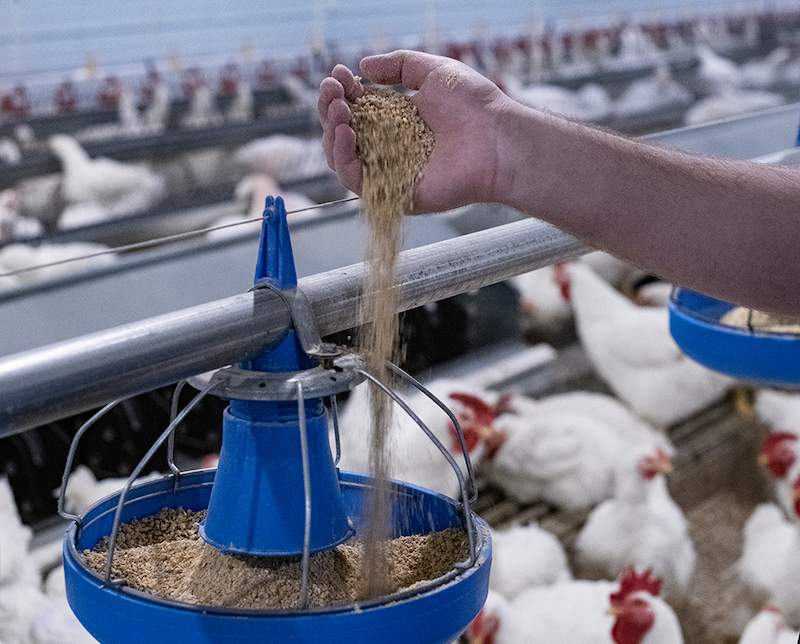
Poultry is the species that has the lowest carbon footprint of all meat-producing animals.
Feed conversion ratio (FCR) is a key driver of sustainability. Our continuous progress in FCR has allowed us lower the carbon footprint of the global industry by 1% year on year. You can see how in our Carbon Footprint Animation.
Making a positive impact
For decades, we’ve been committed to making a positive impact. That means providing breeding chickens that are healthy, feed-efficient and resilient, supporting poultry producers with practical solutions, and doing business in a way that respects both people and the planet.
At Aviagen, breeding sustainability means doing the right thing – today and for the future – to support our customers, our communities, and the world we share.